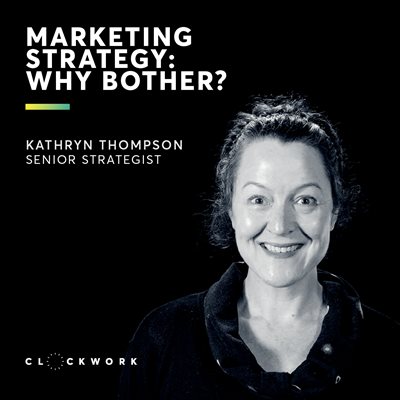
Top stories






LifestyleWhen to stop Googling and call the vet: Expert advice on pet allergies from dotsure.co.za
dotsure.co.za 2 days
More news




















The advice from your new agency is to devote a percentage of your tight marketing budget – a budget that will be diverted from content creation, paid placements, influencers, sexy ads, and leads – to developing a strategy.
However, you’ve done pretty well until now, and never with a marketing strategy in place, because you know your business and your customers. You’re a shoot-from-the-hip, execute-while-hot, qualified-by-experience (or MBA) exec. If you don’t have a problem, you don’t need a strategy, nor do you need to change anything.
But if new entrants are nibbling away at your lunch; if your previously engaged audiences are wandering off in the wrong direction; if your growth figures weren’t quite what your board was expecting; or if you can see some new widget coming down the pipeline and you have no idea how your business is going to handle it, you have a problem.
So, what is and what isn’t a strategy in the marketing context? The truth is, it’s not rocket science, it’s not magic, and it’s not a plan.
“The vast majority of strategic plans are simply budgets with lots of explanatory words attached,” says the genius strategist Roger Martin in the Harvard Business Review.
What strategy is then, is a set of clearly defined choices, outlining who we are talking to, how we are talking to them, where we are talking to them, and what we are talking to them about. These choices are framed within a set of pre-determined objectives.
The less simplistic approach is when we introduce the set of ‘whys’.
The key is that it’s the judgement call, based on hours (and more hours) of research, that says: “We’re doing this, and we’re not doing that, because this gives us the best chance of getting to where we’re clearly aiming.”
Yes, strategy is restrictive; it holds you back with its theoretical, conceptual and possibly inconvenient observations, insights and recommendations. It’s going to restrict where you play and how you engage. Or at least, it will if it’s any good. And that’s where things can sometimes get hairy.
The most heart-wrenching moments for marketers is when a carefully researched strategy, detailing the foundations of insights that led to crafted solutions, is bulldozed by panic-stricken clients reacting to competitors, market changes, or viral content with a knee-jerk and frenzied, “We are all things to all people, at all times!”
At moments like these, the clear and steady path towards objectives is blown in all directions, with the brand itself becoming shattered, disjointed, reactive, and barely sane.
Our choices limit us – for the good. A strategy requires commitment; you have to strap in and remember how our self-imposed limitations are in service of our determined objectives. A good strategy, however, does not limit nimble responses. Quite the contrary. It provides a brand with very clear landing lights – keeping it focused on who it is, who it ‘lives’ for, and what it delivers.
Restrictions allow brands to respond quickly and authentically when challenged, or when opportunities step out from behind the door. Restrictions also clearly advise a brand when to sit something out – reminding it that, in fact, it is not all things to all people, at all times.
In the words of the immortal Iggy Pop: “It is very important what not to do.” While I’m not entirely sure what Pop was getting at, I’m confident that it had something to do with knowing who and why you are, and having a clear, succinct definition of your victory condition.
A strategy is the process of picking that victory condition up by the scruff of its neck, and placing it in the centre of the table. Everything else on the table is in service of that victory. If it doesn’t serve, it leaves. So, of course, it’s restrictive – that’s the point. Strategy determines the sacrifices necessary to ensure victory.
So, why bother, especially considering the price? That depends entirely on your commitment to your marketing victory.